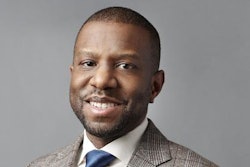I Dr. Mordecai Ian Brownlee
Dr. Mordecai Ian Brownlee
Educators are uniquely responsible for guiding learners to pathways of knowledge, transformation, and empowerment. However, how can we serve as a practical guide for others if we fail first to guide ourselves? Higher education has entered a new era, one unlike previous eras of growth and expansion driven primarily by demographic growth and industrial expansion. Instead, in this era, institutions of higher education will be questioned on their relevance, consolidations, closures, and mergers are sure to occur, and colleges will be required to reimagine their missions and operations to ensure sustainability in evolving and disruptive markets. To prepare for these uncertain times, rather than inundating our higher education community with content that promotes fear, anger, and displacement, we must equip our minds with the tools to sustain ourselves as we prepare to serve others amid disruption.
The following are tools for educators to consider as a guide to self-care in uncertain times:
Focus on what you can control. As colleges and universities begin to feel the pain of budget deficits, reduced student enrollments, rollbacks on diversity, equity, and inclusion efforts, questions of bloated administrations, and the like, it is essential to remember what your responsibility is and what is not. While it is important to have knowledge and awareness of the various environmental realities that impact your institution and the higher education sector, by focusing on your internal locus of control, you center your energies on how you can make a difference, serve students, and advance the institutional mission. I encourage you to focus on what you can control and less on what you cannot. Failure to do so can lead to feelings of hopelessness and despair.
Learn to win the battle in your mind. I recently conversed with my executive performance coach, Kim Huseman, Founding Partner and Chief Talent Development Officer for Houston Education Leadership Partners, LLC. During our session, we had an engaging conversation about controlling my thoughts and disrupting negative thinking. According to Kim, “There are the typical things we equate with self-care, such as good sleep, healthy diet, exercise, and relaxation. All of these are important and necessary, but the biggest saboteur of our well-being is often our disposition and our self-talk.” When I asked her what advice she would have for readers, she shared, “My best advice is to grow one’s optimism actively, is to notice and acclaim all the good things about yourself, monitor and push aside your negative talk because it does not serve you well. Controlling our minds is where we have the most power to change our lives, and we are the only ones who can do it.”
Be intentional about what you consume. At the top of 2025, the U.S. Surgeon General issued a new advisory regarding the link between alcohol and cancer risk. Last year, the National Library of Medicine released a study on the impact of human consumption of ultra-processed foods. Now is the time to review your consumption of such products and make adjustments to ensure your overall health, wellness, well-being, and longevity. You deserve to live a quality life.
Develop a system for daily reflection. Take moments throughout your day to reflect, adjust, and disrupt negative momentum as it emerges. Failure to live and serve with such intentionality can lead to increased engagement with distractions, error thinking, and error actions.
Give yourself and others grace. Grace is not a word we tend to hear in mainstream media, but it is a term that we should embrace in our lives. None of us are perfect, and we have come short at some point(s) in our lives. Learn to forgive yourself and others.
Control your journey. Your career path is a personal responsibility that requires deep intentionality and a system of assessment to ensure your desired outcomes are met. Rather than depending on an institution or someone to validate your worth, you should embrace the gift you possess of self-validation and worth. Never allow someone or an institution to normalize you as being devalued, unappreciated, and cast aside. Take back your power, move forward confidently, and serve an institution where your value will be appreciated. Don’t let fear prevent you from realizing a fruitful and beautiful future for yourself, your family, and those you love.
While the times ahead may be uncertain, there is hope despite what some may say. I encourage you to choose optimism, but not mindlessly. Be informed, lean into the tools provided above, and know that every challenge opens a new door of opportunity.
Dr. Mordecai Ian Brownlee is the president of the Community College of Aurora.












